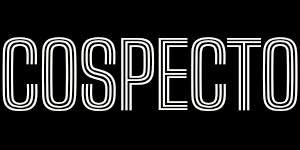I, a Conservative
I, a Conservative
——A Confession of a Counter-Revolutionary Remnant
In an era where revolution has become the norm and progress is regarded as the sole justice, my existence as a counter-revolutionary remnant is itself a dissent.
I do not believe history is linear.
I do not believe that so-called progress equates to goodness, nor that change equates to justice.
I even suspect that modern humanity’s blind worship of tomorrow is, in fact, a distortion of narcissism.
Conservatism Is Not Fear of Change, But a Prudent Regard for Its Costs
Conservatism is “conservative” not out of cowardice, but from a profound understanding of human nature and history. I know that altering the social order is not difficult; what is difficult is reconstructing an order capable of self-restraint and self-perpetuation. This requires time, sacrifice, and reverence—words that progressives are most reluctant to utter.
I believe:
- Order precedes freedom, for freedom can only exist within a stable framework of order;
- Responsibility outweighs rights, for rights without responsibility lead only to corruption and decay;
- Tradition is not a shackle, but the accumulated wisdom of our ancestors;
- Law is not a tool, but a boundary that all, including rulers, must obey;
- Human nature is stable, and overemphasizing the transformative power of education and institutions brings only devastation and tragedy.
These values are not derived from books, but are convictions I have chosen after repeated reflection and validation in reality.
Why Is Conservatism Resurging?
The term “conservatism” originally described the royalists who opposed the French Revolution. Later, as the political spectrum shifted leftward, “conservatives” became defenders of republican systems. Today, even republicanism has been co-opted by the establishment left, prompting conservatism to once again speak independently.
I oppose not the system itself, but the technocratic regime and false moral orthodoxy that emerge when progressivism infiltrates institutions. I support Trump precisely because he opposes the corruption and parasitism of the system, not the rule of law or order itself.
The Predicament of the Chinese-Speaking World
Understanding “conservatism” is particularly challenging in the Chinese-speaking world. On one hand, Confucianism, though traditional, carries a progressive undertone—its political philosophy revolves around moral education, virtuous governance, and elite bureaucracy. On the other hand, cultural influences imported since modernity—liberalism, socialism, and contemporary “human rights” discourses—likewise rest on progressive foundations, sharing a common trait: rational hubris, the belief that institutional design and intellectual elites can guide society to perfection.
Many assume the Chinese-speaking world never experienced an Enlightenment, but the opposite is true: we underwent a different form of Enlightenment—not one that fostered individual agency and limited power, but one that, like Confucianism, equated “enlightenment” with ideological indoctrination. Be it science, democracy, or progress, Enlightenment rhetoric perpetuated the Confucian mindset of “I know, you don’t, so I will teach you.” It merely replaced “heavenly principles” with “reason” and “virtue” with “progress,” yet retained the same rationalist ambition to reshape hearts and society.
From indigenous Confucianism to the liberalism and nationalism introduced in the late Qing, to Marxism and social constructivism later on, and now to gender, ethnicity, and identity politics driven by NGOs and global academia, the Chinese intellectual sphere has always been enveloped by progressive discourses.
The Chinese-speaking world thus faces a dual predicament: it has neither truly reflected on the authoritarian essence of Confucian tradition nor fully engaged with Western conservatism’s emphasis on order, responsibility, and human constraints. As a result, “anti-Confucianism” is often conflated with “anti-tradition,” while progressivism endlessly replicates itself under new guises, expanding its moral hegemony without restraint.
This is why I choose to begin with “who I am” rather than what I oppose. I do not brand myself as “anti-Confucian,” not because I refrain from critiquing Confucianism, but because I believe a true political philosophy should stand on its own merits, not merely as a shadow of opposition.
I Choose to Stand Here, Specto, Cerno, Meditor
This is my stance: specto, cerno, meditor. I do not seek majority approval, nor do I expect to change the world overnight.
But I believe that if a thought carries weight, it will be needed at some moment in the future.
When that moment arrives, people will realize I once spoke these words.
I am a conservative.
Not conservative out of cowardice, nor compromising due to the times.
Remembering the past, safeguarding the future.
Tags: conservatism, progressivism, Chinese-speaking world, Confucianism, political philosophy, order, tradition
